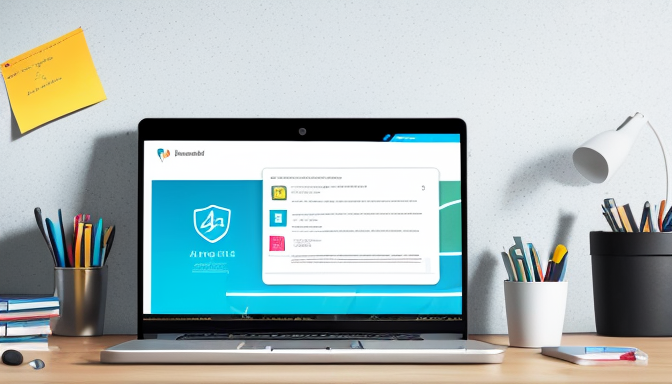In today’s digital landscape, security is not just a luxury; it’s a necessity, especially for Joomla website owners. Are you aware of the lurking dangers that could compromise your site? Many users underestimate the importance of maintaining a secure environment, but neglecting these aspects can lead to devastating consequences. Imagine waking up to find your website hacked, with sensitive data exposed and your reputation tarnished. It’s a nightmare that can be easily avoided with the right precautions.
One of the most significant risks comes from outdated extensions. Joomla, like any other CMS, relies on plugins to enhance functionality. However, if these extensions are not regularly updated, they can become prime targets for cybercriminals. Additionally, using weak passwords is akin to leaving your front door wide open; it invites trouble. Always opt for complex passwords and consider implementing two-factor authentication to add an extra layer of protection.
Another common pitfall is misconfiguration. Many users set up their Joomla sites without fully understanding the security implications. This oversight can lead to vulnerabilities that hackers can exploit. To combat these risks, consider following best practices such as:
- Regularly updating your Joomla core and extensions.
- Creating consistent backups to restore your site in case of an emergency.
- Utilizing robust security extensions that monitor and protect against threats.
By staying informed and proactive, you can significantly reduce the risks associated with your Joomla site. Don’t wait for a security breach to take action—secure your online presence today!
Understanding Joomla Security Vulnerabilities
When it comes to running a Joomla website, security should be your top priority. Many site owners often underestimate the risks lurking in the shadows. Did you know that outdated extensions can be a gateway for hackers? It’s true! These extensions, if not regularly updated, can harbor vulnerabilities that attackers exploit. Just like leaving your front door unlocked, ignoring these updates can invite trouble.
Another common pitfall is the use of weak passwords. Believe it or not, many Joomla users still opt for simple passwords that can be cracked in seconds. Imagine trying to protect a treasure chest with a flimsy lock! Strong, complex passwords are essential to safeguard your valuable data. Additionally, misconfigurations during installation can lead to significant security gaps. It’s like building a fortress but forgetting to close the gates!
To help visualize these vulnerabilities, consider the following table:
| Vulnerability | Risk Level | Mitigation |
|---|---|---|
| Outdated Extensions | High | Regular updates |
| Weak Passwords | Medium | Use strong passwords |
| Misconfigurations | High | Proper installation checks |
By understanding these vulnerabilities, you can take proactive steps to protect your Joomla site. Regular updates, strong passwords, and proper configurations are not just recommendations; they are your best defense against potential threats. So, are you ready to fortify your Joomla fortress?

Best Practices for Securing Your Joomla Site
When it comes to securing your Joomla site, it’s crucial to adopt a proactive approach. Think of your website as a fortress; if the walls are weak, intruders will easily breach them. One of the most effective ways to strengthen your Joomla security is through regular updates. Joomla frequently releases updates that patch security vulnerabilities. Ignoring these updates is like leaving the front door wide open—inviting trouble!
Additionally, managing your extensions is key. Outdated extensions can be a hacker’s playground. Always ensure that your extensions are up-to-date and only install those from reputable sources. If an extension hasn’t been updated in a while, consider whether it’s worth the risk. Just as you wouldn’t wear a helmet that’s past its expiration date while biking, don’t use outdated software on your site!
Another vital practice is implementing strong authentication methods. Encourage your users to create complex passwords and consider enabling two-factor authentication. This adds an extra layer of security, making it significantly harder for attackers to gain access. Remember, a strong password is like a solid lock; it keeps unwanted visitors out.
Lastly, don’t forget about regular backups. In the unfortunate event of a security breach, having a recent backup can save you from losing everything. Schedule automatic backups and store them in a secure location. Think of backups as your safety net—always there to catch you when things go wrong.
Frequently Asked Questions
- What are the most common security risks for Joomla websites?
Joomla websites often face risks like outdated extensions, weak passwords, and misconfigurations. These vulnerabilities can leave your site open to attacks, making it crucial to stay informed and proactive.
- How can I secure my Joomla site effectively?
Securing your Joomla site involves several best practices, such as keeping your extensions updated, using strong passwords, and implementing two-factor authentication. Additionally, consider using security extensions to add an extra layer of protection.
- Why is it important to update Joomla regularly?
Regular updates are essential as they often include security patches that fix vulnerabilities. Ignoring updates can leave your site exposed to threats, much like leaving the front door of your house unlocked.
- What should I do if my Joomla site gets hacked?
If your site is hacked, act quickly! Change your passwords immediately, restore your site from a backup, and scan for malware. It’s also wise to analyze how the breach occurred to prevent future incidents.